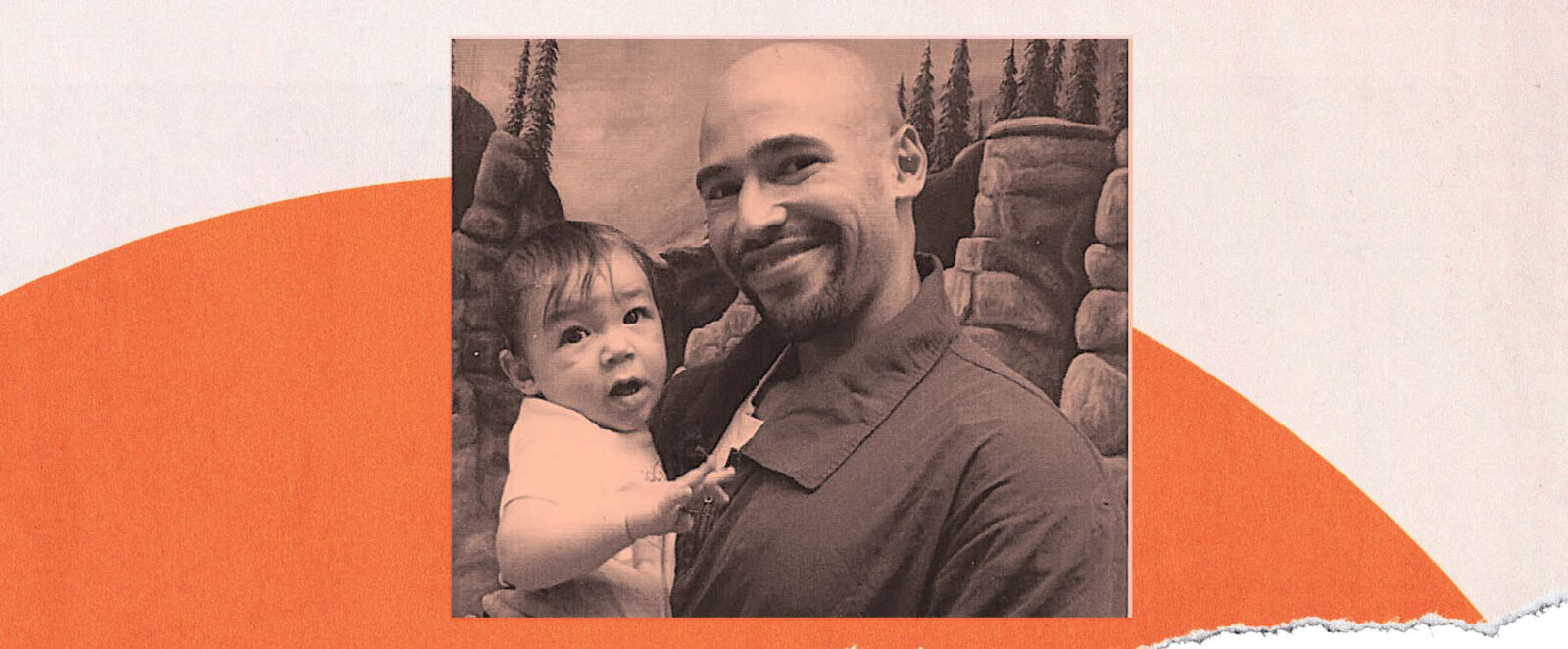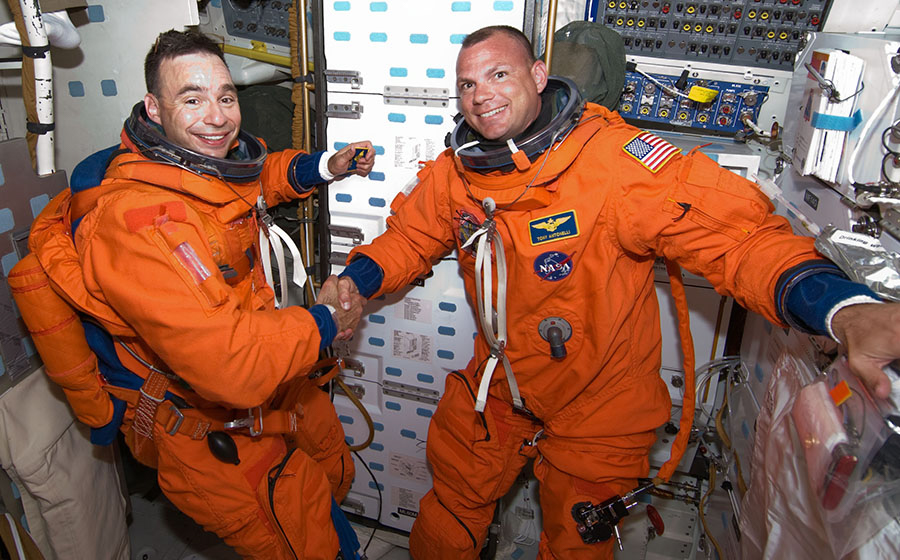


Twenty years ago, Felix “Phill” Rosado received a death by incarceration sentence. Sean Kelley spoke to him by phone about how time passes behind bars, solitary confinement, and restorative justice.
Felix “Phill” Rosado: No, time moves extremely fast. Days fly by, so do weeks, months, and unfortunately years. I’ve been here for twenty-two years. For the first decade or so, I’d say that time went a little slower. I wasn’t involved in the things I am involved in now. I was pretty much trying to do everything I could to escape the reality of my situation. I wasn’t necessarily living a meaningful life. That’s not the case anymore. My schedule is packed. I work. I coordinate a couple of projects. I facilitate workshops. The days tend to fly by.
When I got to Graterford I saw men who looked like they were still in the 1970s. And when I inquired, someone told me that they had been in for twenty years or thirty years; one I think had been in thirty-five. That just really blew my mind. These guys had on bell-bottoms and butterfly collars and big afros, and it was 1996. It was kind of like I had stepped out of a time machine. Once I found out what the story was with these men it really scared me. It shook my world. And once I realized that I was in that same situation, I began to fight for my freedom.
Solitary confinement is a peculiar experience for sure. When I got to Graterford I started getting into a little trouble at first, and I ended up in a restricted housing unit known as the Hole a few times, usually for ninety days at a time, sometimes sixty—being in the cell twenty-three hours a day, seven days a week. It’s pretty much three meals getting delivered to the cell, a shower three times a week, and if I chose I could go outside for one hour to another cage, basically from one cage to another. That’s how you break up the day. I didn’t have a watch. Nobody in solitary really knows what time it is. So we schedule time around events. Basically we know what time it is by when the meal is being passed out, shift changes, and mail and medication and things like that. And sometimes the corrections officer will go by, and if he’s not a smartass, we’ll ask the time and he’ll tell us.
Restorative justice is a new/old way of doing justice that seeks to heal harm by involving the people who are directly affected by the harm including those who caused it. It’s based on the foundation that we’re all interconnected and that when one is harmed all are harmed. When I got sentenced I considered that the end of the justice process. What restorative justice taught me is that it’s not the end. In some ways that’s only the beginning. And so we still have opportunities to try to put things more right and to create a better life for ourselves and a better world that extends well beyond sentencing. Being introduced to restorative justice and learning that there’s another way to do justice outside of the context of cops, courtrooms, and prison cells gave me new life and extended my concept of time.
A day for me begins around 6:15 in the morning when an officer gets on the intercom system and yells out that it’s count time. Officers on every block go around and actually count the people in each cell. I guess they tally all that up. As soon as the math adds up, the count clears. Around 6:15 when they make the announcement, I start to make my way out of bed. I wash my face, or do a set of push-ups, or shave my head, or do one of my morning rituals. I turn on the radio, maybe listen to NPR or sports talk or one of the music stations.
At 7:00 they open for breakfast. I always go to breakfast seven days a week. It’s the meal that’s the best to handle. I sit down at the table with a few guys, and we talk about news or sports or the law or how we’re going to get out of prison. After that I rush to the kiosk to check my emails. I do that like clockwork. Then I leave the block around 7:30 to go to work. I work at the chapel. I’ll do a little cleaning up. From there I’ll either go to the school or the law library or the auditorium. I’ll go participate in one of my programs or facilitate a workshop. And then at 11:00 morning activities are over, and we go to lunch. I come back to the block and go to lunch, then come back and check the kiosk again. I either make a call or talk to some of the guys around here until 11:30.
That’s when we lock up again for another count. This count is from 12:00 to 1:00. Usually I’ll sit in my cell, and I might write a few emails on my tablet, read, or write a letter. Then at 1:00 they open back up for afternoon activities, and I’ll go to the yard or school or chapel, one of my activities. That ends at 3:15. I come back. I either take a shower or check the kiosk again, and then we lock up again from 3:30 to 5:00. At 5:00 I come out, and I eat dinner; I might make a phone call. At 6:00 we have evening activities, and that’s when I go off the block again to school or work or to a class or to a program. At 8:00 that’s over. I come back and take my shower, I get my hot water for a cup of tea, and at 9:00 we’re in, and we stay in until 7:00 the next morning. So that’s the routine. I’m constantly looking at my watch to see if it’s ten minutes to go back to the block or if they’re about to open the doors in five minutes. It’s always constantly preparing for what’s next.
I’m by myself. I’ve actually been in the same cell for over eleven years, since 2006.
Oh yeah. I believe there’s something after this. There has to be. If not, none of it makes sense and it’s all worthless. It would be a reallybe really hopeless situation if there wasn’t something better than this.
I’m working on it.

Felix Rosado earned a bachelor’s degree in interdisciplinary studies from Villanova University in 2016. He is a cofounder of Let’s Circle Up, a restorative justice project based in the State Correctional Institution at Graterford, Pennsylvania, which he coordinates alongside the Alternatives to Violence Project. He has leadership roles in Inside Out Prison Education Program, Right 2 Redemption, and Decarcerate PA. He served as an advisor to Eastern State Penitentiary’s exhibition Prisons Today: Questions in the Age of Mass Incarceration.

Sean Kelley is senior vice president, director of interpretation at Eastern State Penitentiary Historic Site, Philadelphia. During his twenty-two-year tenure he has overseen the selection and curation of more than one hundred site-specific installations, including Prisons Today: Questions in the Age of Mass Incarceration, which won the 2016 Overall Award for Excellence from the American Alliance of Museums.


Get the latest news and stories from the Rubin, plus occasional information on how to support our work.